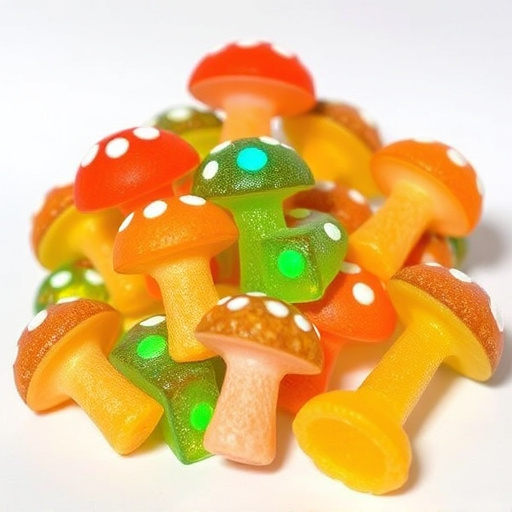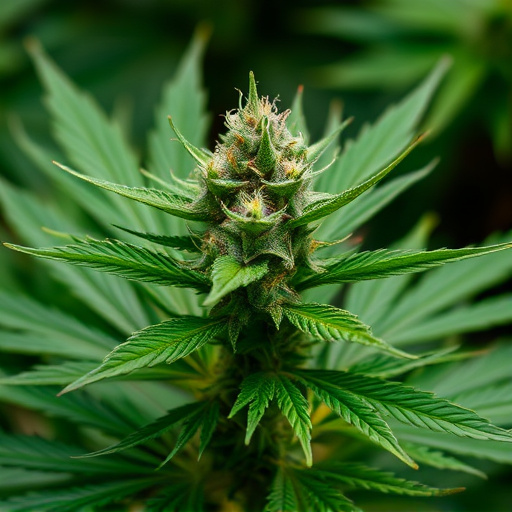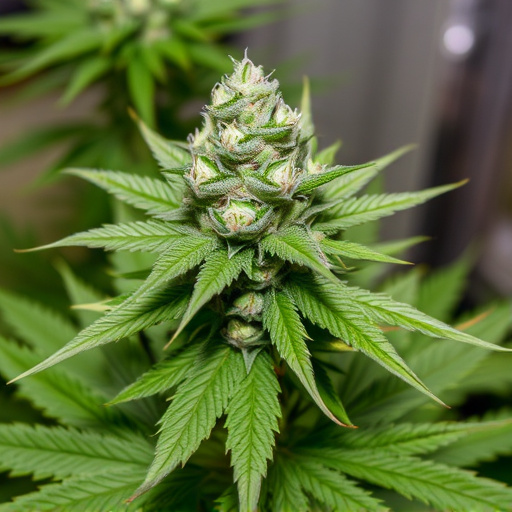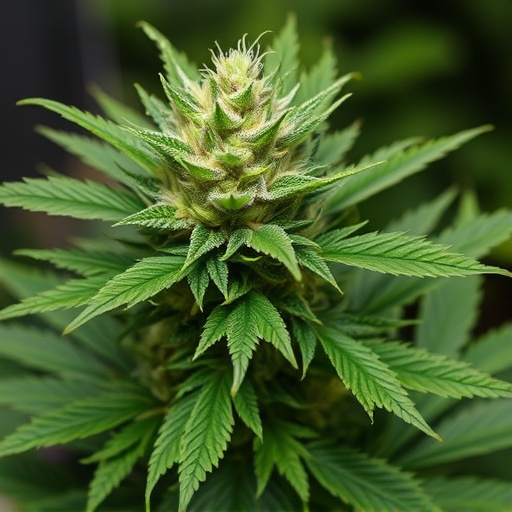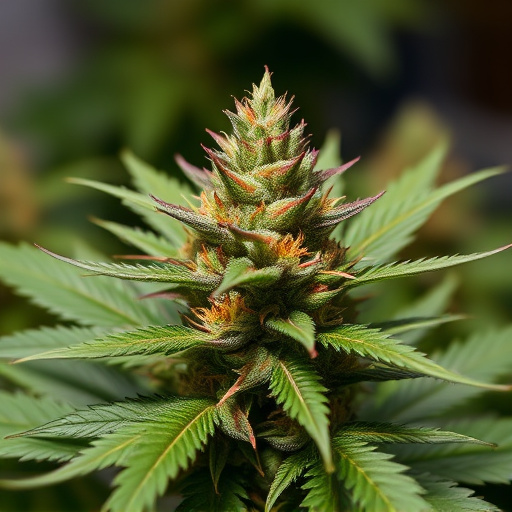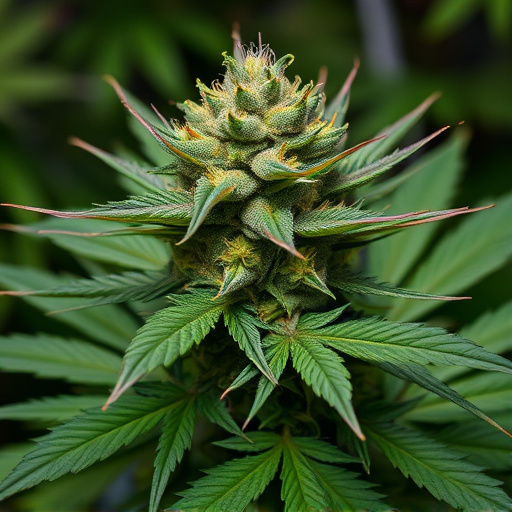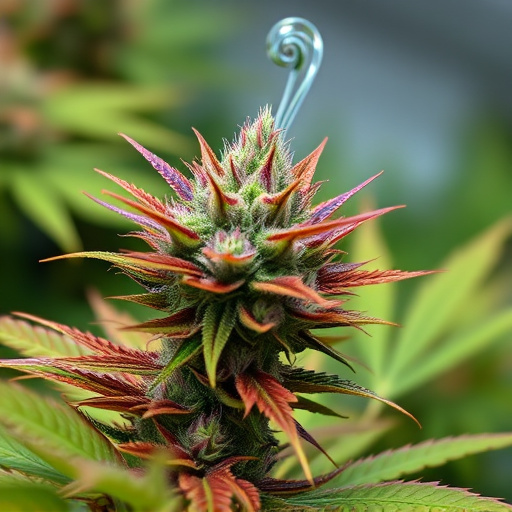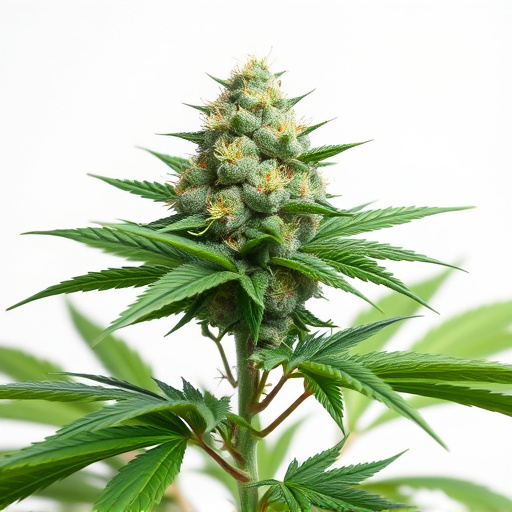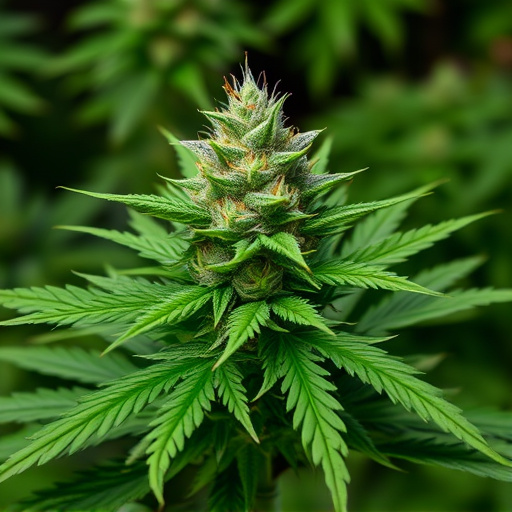Potent cannabis strains, high in cannabinoids like THC and CBD, offer potential therapeutic effects on anxiety, stress, depression, and PTSD. While THC provides short-term relief but may induce paranoia with excessive use, CBD-rich strains provide benefits without intoxicating effects. Studies suggest CBD's ability to reduce these symptoms. Understanding the cannabinoid profile in different potent cannabis strains allows individuals to make informed decisions for their mental well-being. Tailoring these strains to individual needs is crucial for safe and effective treatment through complementary therapy. However, caution is necessary as regular use of high THC or unbalanced ratios may trigger psychosis. Future research should focus on identifying beneficial compounds and understanding consumption methods' impact on mental health outcomes.
Can cannabis flower be a game-changer in mental health support? With growing interest in its therapeutic potential, understanding the impact of this natural compound is crucial. This article explores the effects of cannabis flower on mental well-being, focusing on how specific potent cannabis strains may alleviate conditions like anxiety and depression. We’ll delve into the science behind its action, uncover potential risks, and discuss future research directions for this promising area.
- Understanding Cannabis Flower and Its Effects on Mental Health
- Potent Cannabis Strains for Specific Mental Health Conditions
- Potential Benefits, Risks, and Future Research Directions
Understanding Cannabis Flower and Its Effects on Mental Health

Cannabis flower, derived from the plant Cannabis sativa, has been a subject of interest for its potential therapeutic effects on mental health. It’s not just about enjoying its mild euphoria; cannabis contains various chemical compounds called cannabinoids, most notably THC (tetrahydrocannabinol) and CBD (cannabidiol). These cannabinoids interact with our body’s endocannabinoid system, which plays a role in regulating mood, memory, and stress responses.
Potent cannabis strains often contain higher levels of THC, known for its psychoactive properties, potentially offering short-term relief from anxiety and depression symptoms. However, it’s crucial to approach this with caution as excessive THC can also induce paranoia or panic attacks. On the other hand, CBD-rich strains are gaining popularity for their potential mental health benefits without the intoxicating effects. Studies suggest that CBD may help reduce stress, anxiety, and even alleviate symptoms of post-traumatic stress disorder (PTSD). Thus, understanding the specific cannabinoids present in different potent cannabis strains can aid individuals in making informed decisions regarding their mental well-being.
Potent Cannabis Strains for Specific Mental Health Conditions
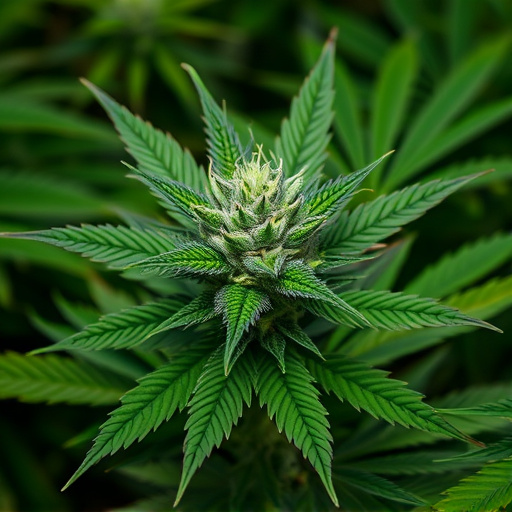
When it comes to mental health, certain potent cannabis strains have shown promise in treating specific conditions. For example, high CBD (cannabidiol) strains are often recommended for anxiety and stress relief due to their calming effects and lack of psychoactive properties. These non-intoxicating profiles make them a popular choice for individuals seeking alternative therapies without the mind-altering effects associated with THC (tetrahydrocannabinol).
Additionally, specific potent cannabis strains are known for their potential in managing symptoms of depression and post-traumatic stress disorder (PTSD). Strains rich in THCA (tetrahydrocannabinolic acid) and other cannabinoids may offer anti-inflammatory and neuroprotective benefits, providing a natural approach to mood regulation. The key is finding the right balance of terpenes and cannabinoids tailored to individual needs, ensuring a safe and effective treatment option for those exploring cannabis as a complementary therapy.
Potential Benefits, Risks, and Future Research Directions
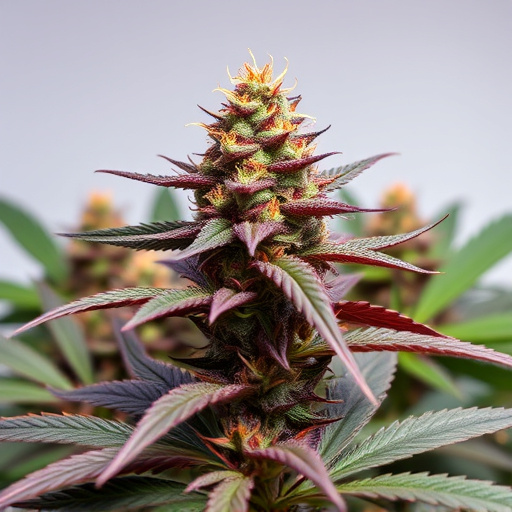
While there is growing interest in cannabis for its potential mental health benefits, it’s crucial to approach this topic with caution. Studies suggest that specific potent cannabis strains may help alleviate symptoms of conditions like anxiety and depression, thanks to their THC and CBD content. Some users report reduced stress and improved mood after consuming certain strains known for their high THC levels or balanced ratios of THC to CBD.
However, risks are associated with cannabis use, particularly when it comes to mental health. Regular or heavy use can potentially trigger or worsen psychosis, especially in those predisposed to conditions like schizophrenia. Additionally, the long-term effects on developing brains in adolescents and young adults remain a concern. Future research directions should focus on identifying specific compounds within cannabis that may offer therapeutic benefits without adverse effects, as well as understanding how different consumption methods impact mental health outcomes.
While cannabis flower holds promise in alleviating symptoms of various mental health conditions due to its diverse cannabinoid profiles and potential neuroprotective effects, it’s crucial to approach its use with caution. Further research is needed to fully understand the long-term effects and optimal dosages for specific strains, such as those known for their potent levels of CBD or THC variants. Consulting healthcare professionals before incorporating cannabis into mental health treatment plans is essential to ensure safety and efficacy. The evolving landscape of cannabis research points towards a promising future where tailored, evidence-based approaches can enhance the well-being of individuals navigating mental health challenges.
